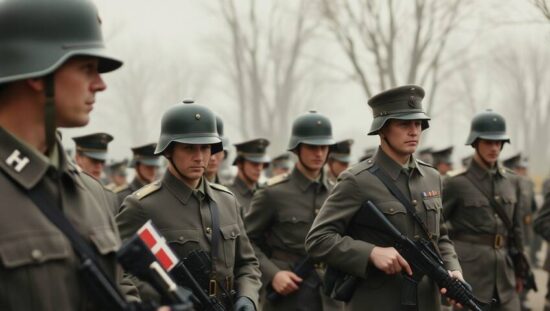The Parliamentary Commissioner for the Bundeswehr has highlighted “pressing challenges” for the German military. SPD politician Eva Högl emphasized that, in particular, the recruitment of personnel must take priority.
“There are still around 20,000 men and women missing to reach the target of 203,000 soldiers” Högl explained in a conversation with dpa in Berlin, adding that numerous posts are vacant, which negatively impacts readiness. The actual readiness in many units is only around 50 percent, which is “too little” in the face of a “heightened security situation” Högl warned.
Högl had already pointed out in her annual report in the spring that the troop is constantly shrinking and the age structure is becoming a growing problem. She underlined that the personnel issue has the highest priority for 2025. Högl also suggested re-examining the concept of conscription for young people, which should include both men and women and a wide range of deployment options.
As the Parliamentary Commissioner, Högl controls the armed forces together with the Bundestag and is also a point of contact for soldiers who can share their concerns with her. She is still in office until May 2025, and therefore emphasizes: “The personnel situation must have the highest attention of all politically responsible individuals.” The previous measures have not brought about sufficient change, so a new approach is needed, Högl said, adding: “I favor a year for society and think it would be good if it were mandatory.”
The scope of participation should be as broad as possible, which would strengthen social cohesion, she explained.
This proposal goes beyond the model of Defense Minister Boris Pistorius, who plans a draft and the introduction of a duty to report for young men – and aims to make Germany “war-ready” by 2029. Högl acknowledged that the governing coalition was unable to implement these plans. However, she emphasized: “His proposal would have been a good start. It would be good if the next Bundestag could quickly discuss and decide on the topic.” She also referred to former Chancellor Olaf Scholz (SPD): “This turning point is also a task for further reforms and more speed. This concerns material, personnel, and infrastructure, and we are not yet at the goal.”
For the future of “defense policy” Högl called for cross-party unity and broad majorities in the Bundestag. The defense budget must continue to rise to attract and retain qualified personnel. At the same time, she warned that bureaucracy within the Bundeswehr is a significant obstacle.





